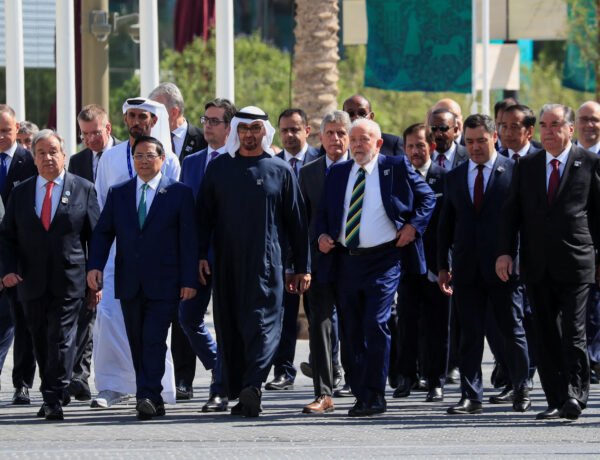Naval Forces of Russia, China, and Iran Conduct Joint Drills in the Gulf of Oman
In a display of military cooperation and solidarity, the naval forces of Russia, China, and Iran recently completed joint exercises in the Gulf of Oman. This joint operation comes at a time of increasing geopolitical tensions and serves as a reminder of the strategic partnerships that exist between these nations.
Strengthening Military Alliances
The joint drills conducted by Russia, China, and Iran highlight the growing importance of military alliances in today’s complex global landscape. These exercises not only serve to enhance the capabilities of the participating nations but also demonstrate their commitment to maintaining stability and security in the region.
By conducting joint drills, these countries are able to share their expertise, exchange knowledge, and improve their interoperability. This collaboration fosters a sense of trust and understanding between the naval forces of Russia, China, and Iran, which is crucial in times of crisis or conflict.
Enhancing Maritime Security
The Gulf of Oman holds significant strategic importance due to its proximity to key shipping routes and vital energy resources. The joint exercises conducted by Russia, China, and Iran aim to enhance maritime security in this region, ensuring the safe passage of commercial vessels and protecting the interests of the participating nations.
These drills provide an opportunity for the naval forces of Russia, China, and Iran to practice various scenarios, such as anti-piracy operations, search and rescue missions, and counter-terrorism efforts. By improving their operational capabilities, these countries are better equipped to respond effectively to potential threats and maintain stability in the Gulf of Oman.
Geopolitical Implications
The joint exercises in the Gulf of Oman have significant geopolitical implications. They serve as a visible demonstration of the close ties between Russia, China, and Iran, challenging the existing balance of power in the region.
As the United States and its allies closely monitor these developments, the joint drills send a clear message that these nations are capable of defending their interests and cooperating with each other in the face of common challenges. This display of military cooperation may also serve as a deterrent to potential adversaries, highlighting the strength and unity of these nations.
Conclusion
The joint exercises conducted by the naval forces of Russia, China, and Iran in the Gulf of Oman underscore the importance of military alliances and cooperation in today’s world. These drills not only enhance the capabilities of the participating nations but also contribute to the overall maritime security in the region.
As geopolitical tensions continue to rise, these joint exercises serve as a reminder of the strategic partnerships that exist between Russia, China, and Iran. By working together, these nations demonstrate their commitment to maintaining stability and protecting their shared interests.
While the geopolitical implications of these joint drills are significant, it is important to approach them with a balanced perspective. The exercises should be seen as an opportunity for these countries to improve their operational capabilities and strengthen their relationships, rather than a cause for alarm or escalation.
As the global landscape evolves, military cooperation and alliances will continue to play a crucial role in maintaining peace and security. The joint exercises in the Gulf of Oman serve as a testament to the importance of these partnerships and the potential they hold for fostering stability in an increasingly complex world.



